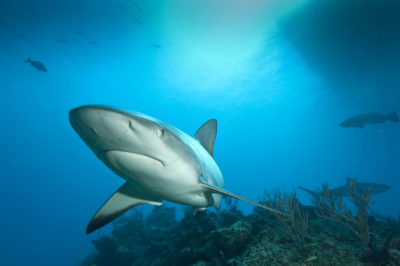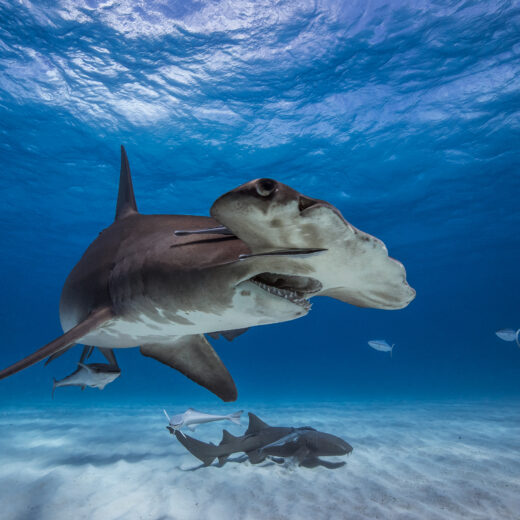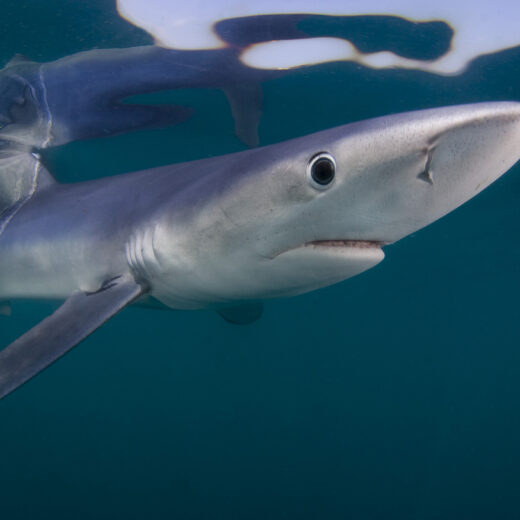
The scoresheet reads Sharks 1, Mickey Mouse 0. In what was seen as a monumental climbdown by the directors of the world’s magical wonderland, Disney announced Friday it will not be serving the traditional shark’s fin soup at its Chinese wedding banquets when the Hong Kong SAR theme park opens September 12.
But in an attempt to salvage its battered reputation in the face of a global call for a Disney boycott, a spokesman said the decision was because the management was “not able to identify an environmentally sustainable fishing source” to ensure the fins sold were not products of large-scale butchering of sharks in open seas.
The row was sparked by marine conservationist Brian Darvell, who last month sent a letter to Disney’s US-based chief executive, Michael Eisner, strongly objecting the theme park’s decision to serve the delicacy.
The letter opened a Pandora’s Box, with many green groups, including the WWF, Greenpeace and the US-based conservation group WildAid, all wanting part of the action and threatening to globally boycott Disneyland.
In an attempt to appease its critics, Disney said it would remove shark’s fin soup from the menu, but would serve it to customers who requested the dish.
It also said it would source its sharks’ fins from “reliable and responsible suppliers.” The offer did not appease conservation groups and, by early this week, more than 1,000 people from around the world – including Disney shareholders and scuba divers – had sent e-mails to Disney’s board of directors protesting its decision to serve shark’s fin soup at its Hong Kong SAR theme park.
In a press release Friday, Disney said it has now decided to remove shark’s fin soup from the park altogether.
“After careful consideration and a thorough review process, we were not able to identify an environmental sustainable fishing source, leaving us no alternative except to remove shark’s fin soup from our wedding banquet menu,” the press release said. A Disney spokeswoman denied the company had bowed to public pressure. Commenting on the decision, Don Robinson, group managing director of Hong Kong SAR Disneyland, said, `”Striking the right balance between cultural sensitivities and conservation has always been our goal, and we believe this decision is consistent with our ongoing commitment to conservation and responsible consumption practices.”
WWF Hong Kong SAR chief executive officer Eric Bohm described Disneyland’s decision as “wonderful and fantastic.” Speaking from London, he told The Standard it is a victory of common sense. “It is a victory for the principle of sustainable consumption. We never felt it was a war against Disney. It is not a war against Chinese culture either,” he said.
GreenPower chief executive Man Chi-sum welcomed the move, saying “this is a good start.”
Both Man and Bohm said they will continue their discussions with Disneyland on the issue and on teaching students about sustainable consumption.
WildAid campaigner Victor Wu said, “This is exactly the positive response every environmentally concerned individuals who have written to Disney was eagerly awaiting.”
Environmentalists say millions of sharks are killed each year for the traditional Asian delicacy. Fishermen often hack off the fins and dump the sharks back into the water.
In a separate issue, three companies are vying to provide ferry services to Hong Kong SAR Disneyland from Central, according to the Transport Department.
Spokeswoman Grace Yeung said the government will choose one licensee to operate the route next month.
The MTR will open a dedicated line to Disneyland. Yeung said the Disneyland pier will be open to private boats, similar to Queen’s Pier.
chester.yung@singtaonewscorp.com
teddy.ng@singtaonewscorp.com
Copyright 2005, The Standard, Sing Tao Newspaper Group and Global China Group. All rights reserved. No content may be redistributed or republished, either electronically or in print, without express written consent of The Standard.
Stay in touch and get the latest WildAid updates.
SIGN UP


